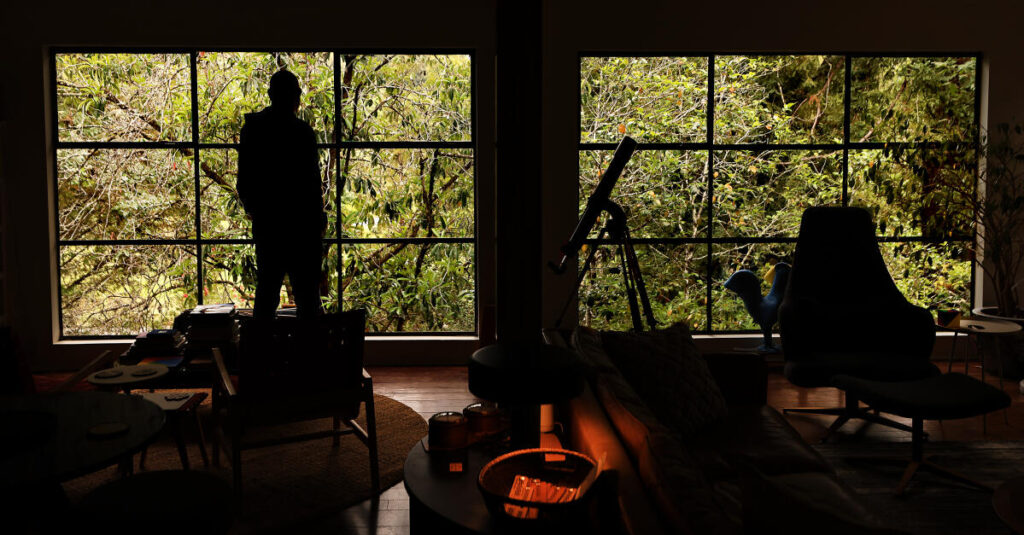In 2019, Bryce Skolfield and his partners purchased a renovated late 19th century ranch in Guerneville and opened Mine & Farm Inn. Moving to a new location and starting a new industry was “anxious and scary,” Skolfield says, but “insurance wasn't on our minds. … That ended up being our biggest challenge.”
Securing insurance wasn't an issue initially, but each year, despite no history of claims, the inn's insurance is not renewed and canceled, forcing the couple back into a market with fewer options, less coverage and higher prices.
In the past four years, insurance costs have risen by more than 200 percent, Skolfield said. Insurance costs now account for more than 10 percent of the inn's total revenue, more than double what they usually are. Skolfield has had to hold off on renovations and expansions, adjust room rates and evaluate staffing.
“We as owners can't even pay ourselves a salary because we have to put everything back into the business to make up for the exorbitant cost increases,” Skolfield said.
As California's insurance crisis deepens, homeowners are in the spotlight, but local businesses are feeling the effects too. Major insurers including Allstate, Farmers and USAA are limiting coverage or pulling out of the state altogether, citing climate change-related fire risks. As a result, some businesses are seeing skyrocketing costs for all types of insurance they need as the insurance market becomes less competitive. The effects are also rippled through workers and consumers as businesses are forced to make tough choices under the weight of skyrocketing costs.
“I'm not sure a lot of small, independent businesses can hold out another year in this kind of situation,” Skolfield said. “This could be really bad for the local economy in a lot of ways.”
Joe Bartolomei, owner of the Farmhouse Inn in Forestville, said he “just keeps hearing about” rising insurance costs as he serves on the board of directors for the Sonoma County Hospitality Association.
“It's too much of a burden for small businesses,” he said. “Even in good times, the profit margins aren't that great.”
Already, the local tourism and hospitality industry on which the region relies has had to endure biblical adversity in the form of devastating wildfires, winter storms, and the COVID-19 pandemic. While larger businesses may be able to hang on, some fear that many of the small businesses that embody the region's charm and character may be pushed out.
“The small, mom-and-pop places that offer really intimate, unique and authentic experiences are the ones that are getting squeezed the most,” Bartolomei said.
Personally, Bartolomei said general liability insurance on the Farmhouse Inn property has gone from about $70,000 a year to nearly $400,000.Unable to secure policies from major insurers, Bartolomei has had to turn to the largely unregulated secondary market, where premiums have skyrocketed for undesirable coverages.
“It's incredibly frustrating, stressful and expensive,” he said, “and it doesn't seem like it's getting better. It just seems like every year it gets worse.”
With insurance coverage becoming increasingly precarious, Bartolomei says he thinks twice before filing any kind of claim. The only time he has filed a claim was in 2019 when the area flooded in his 23 years in business. “You don't want to touch the insurance because if you make a claim, they'll probably cancel the policy right away,” he says. “It doesn't feel good to pay for something you'll never use. Essentially, you only buy insurance if there's a catastrophic event where your house is completely destroyed, and then you just hope you have enough money to rebuild.”
Glen Ellen Star, a popular local restaurant in Sonoma Valley, has weathered some challenges in its 12 years of operation, including several area fires and the ensuing pandemic. But what chef-owner Ali Weiswasser has struggled with most recently is the cost of insurance. After receiving quotes for a general liability policy and a triple-price increase for a less-coverage umbrella policy, Weiswasser decided to forgo the latter, hoping that the general liability policy would be enough if something were to happen.
“Are you really willing to triple your premiums for a lower rate?,” Weiswasser said. “So it's a bit of a gamble.”
The steadily rising cost of insurance inevitably means higher menu prices, which can be frustrating. “There's only so much you can absorb,” Mr. Weiswasser said. “But when you look at it at the end of the year, you're not making money. You're just paying more.”

